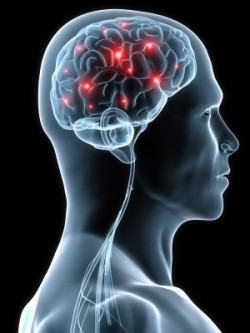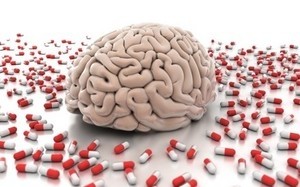Study questions ginkgo biloba for brain health

There were no differences between the effects of gingko or placebo on the mental function of over 3,000 elderly people participating in the randomised, double-blind, placebo-controlled clinical trial.
The study, published in the Journal of the American Medical Association, is said to be the largest randomized controlled trial of Gingko biloba on cognitive function to date.
“We found no evidence for an effect of Gingko biloba on global cognitive change and no evidence of effect on specific cognitive domains of memory, visual-spatial construction, language, attention and psychomotor speed, and executive functions,” wrote the researchers, led by Beth Snitz, PhD, from the University of Pittsburgh.
Ginkgo is derived from the leaves of the ginkgo tree and has been used for thousands of years by the Chinese as an herbal remedy for a variety of ailments. It contains potent antioxidants called flavoglycosides that have been shown to have neuro-protective effects in animal models of spinal cord injury.
Inconsistencies
Previous clinical trials in Germany and France reported that gingko biloba produced long-term improvements in cognitive function in older adults with dementia, while a study from Stanford University reported no benefits for the herbal in healthy, non-demented older adults (Journal of the American Dietetic Association, March 2007, Vol. 107, pp. 422-432).
The new study does add to the overall data on gingko, but should “not be viewed as the final word”, said Douglas MacKay, ND, vice president, scientific and regulatory affairs for US trade association the Council for Responsible Nutrition (CRN).
“It is important to put this study into context and to remember that there is a large body of previously published evidence, which suggests that Ginkgo biloba may help improve cognitive impairment in older adults,” said MacKay.
“There are also additional ongoing clinical trials, the results of which may address some of the limitations of the current study. The results of this single study add to the overall data on Ginkgo biloba, including valuable evidence in support of Ginkgo’s safety profile, but should not be viewed as the final word,” he added.
Study details
Snitz and her co-workers recruited 3,069 elderly community-dwelling participants aged between 72 and 96. The average age of the participants of the Ginkgo Evaluation of Memory (GEM) study was 79.1.
Participants were randomly assigned to receive either a twice-daily dose of 120-mg extract of Gingko biloba (EGb 761 from Schwabe Pharmaceuticals in Karlsruhe, Germany) or placebo for an average period of 6.1 years.
A battery of tests, including the Modified Mini-Mental State Examination (3MSE) in the cognitive subscale of the Alzheimer Disease Assessment Scale (ADAS-Cog), was used to assess cognitive function over time.
“In sum, we find no evidence that Gingko biloba slows the rate of cognitive decline in older adults,” wrote the researchers.
“These findings are consistent with previous smaller studies examining prevention of decline and facilitation of cognitive performance and with the 2009 Cochrane review of Gingko biloba for dementia and cognitive impairment,” they concluded.
No magic bullet
The CRN’s MacKay added that cognitive decline, dementia and Alzheimer’s disease are multi-factorial chronic conditions and “the exact causes and mechanisms are unknown, and most importantly that there is no magic bullet or cure that has yet been found.
“The solution to these conditions will likely not be a single isolated approach, but rather will be a multi-component, integrative approach to supporting cognitive health, which may include lifestyle habits such as eating a healthy diet and taking dietary supplements such as Ginkgo biloba, along with both mental and physical exercise,” he said.
Source: Journal of the American Medical Association
Volume 302, Issue 24, Pages 2663-2670
"Ginkgo biloba for Preventing Cognitive Decline in Older Adults - A Randomized Trial"
Authors: B.E. Snitz, E.S. O’Meara, M.C. Carlson, A.M. Arnold, et al.















